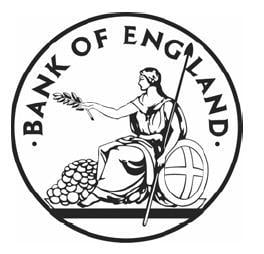
13:41 PM, 14th December 2017, About 7 years ago
Text Size
The Monetary Policy Committee (MPC) today unanimously voted to keep the Bank of England Base Rate at 0.50% and maintain the current levels of Quantitative easing. Good news at least for borrowers.
With inflation now at 3.1% it remains to be seen how long it will take for the fall in the Sterling exchange rate cost implications on imported goods and services to fully push through the economy. This is causing much of the extended lag for inflation falling back, but so too are price rises outside of this for oil, gas and food etc.
The MPC’s summary of its decision was released as below:
“The Bank of England’s Monetary Policy Committee (MPC) sets monetary policy to meet the 2% inflation target, and in a way that helps to sustain growth and employment. At its meeting ending on 13 December 2017, the MPC voted unanimously to maintain Bank Rate at 0.5%. The Committee voted unanimously to maintain the stock of sterling non-financial investment-grade corporate bond purchases, financed by the issuance of central bank reserves, at £10 billion. The Committee also voted unanimously to maintain the stock of UK government bond purchases, financed by the issuance of central bank reserves, at £435 billion.
In the MPC’s most recent economic projections, set out in the November Inflation Report, GDP grew modestly over the next few years, at a pace just above its reduced rate of potential. Consumption growth remained sluggish in the near term before rising, in line with household incomes. Net trade was bolstered by the strong global expansion and the past depreciation of sterling. Business investment, while affected by uncertainties around Brexit, was projected to continue to grow at a modest pace, supported by strong global demand, high rates of profitability, the low cost of capital and limited spare capacity.
Unemployment was expected to remain low throughout the three-year forecast period, and domestic inflationary pressures were projected to pick up gradually as remaining spare capacity was absorbed and wage growth recovered. Nevertheless, reflecting the diminishing effect of sterling’s depreciation, CPI inflation was forecast to decline from around 3% to approach the 2% target by the end of the three-year forecast period.
The recent news in the macroeconomic data has been mixed and relatively limited. Global growth has remained strong. Domestically, some activity indicators suggest GDP growth in Q4 might be slightly softer than in Q3. The measures announced in the Autumn Budget will lessen the drag on aggregate demand stemming from fiscal consolidation, relative to previous plans. The labour market remains tight, and surveys suggest this will continue. Although it is too early to arrive at a comprehensive view of the effect of November’s rise in Bank Rate on the economy, the impact on interest rates faced by households and firms has been consistent with previous experience.
CPI inflation was 3.1% in November. It remains the case that inflation has been pushed above the target by the boost to import prices that resulted from the past depreciation of sterling. The MPC judges that inflation is likely to be close to its peak, and will decline towards the 2% target in the medium term. In line with the procedure set out in the MPC’s remit, the Governor will be writing an open letter to the Chancellor of the Exchequer, accounting for the overshoot relative to the target and explaining the MPC’s policy strategy to return inflation sustainably to the target. This letter will be published alongside the minutes of the February 2018 MPC meeting and the accompanying Inflation Report.
Developments regarding the United Kingdom’s withdrawal from the European Union – and in particular the reaction of households, businesses and asset prices to them – remain the most significant influence on, and source of uncertainty about, the economic outlook. The Committee noted the progress in the Article 50 negotiations between the United Kingdom and the European Union. In such exceptional circumstances, the MPC’s remit specifies that the Committee must balance any trade-off between the speed at which it intends to return inflation sustainably to the target and the support that monetary policy provides to jobs and activity.
The steady erosion of slack over the past year or so has reduced the degree to which it is appropriate for the MPC to accommodate an extended period of inflation above the target. Consequently, at its previous meeting, the MPC judged it appropriate to tighten modestly the stance of monetary policy in order to return inflation sustainably to the target, while continuing to provide significant support to jobs and activity. At this meeting, the Committee voted unanimously to maintain the current monetary stance. The Committee remains of the view that, were the economy to follow the path expected in the November Inflation Report, further modest increases in Bank Rate would be warranted over the next few years, in order to return inflation sustainably to the target. Any future increases in Bank Rate are expected to be at a gradual pace and to a limited extent. The Committee will monitor closely the incoming evidence on the evolving economic outlook, including the impact of last month’s increase in Bank Rate, and stands ready to respond to developments as they unfold to ensure a sustainable return of inflation to the 2% target.”
Previous Article
Lending Changes for Landlords by UK Finance